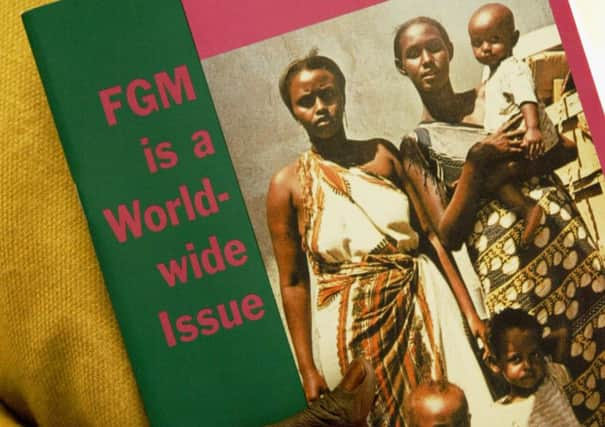Female genital mutilation a ‘national scandal’


The Commons home affairs committee said that it had resulted in the preventable abuse of thousands of girls.
In a hard-hitting report, the committee said female genital mutilation (FGM) may be one of the most prevalent forms of “severe physical child abuse” taking place in Britain, with an estimated 65,000 girls under the age of 13 at risk.
Advertisement
Hide AdAdvertisement
Hide AdWhile the practice has been outlawed in Britain since 1985, the first prosecution only took place this year – days before director of public prosecutions Alison Saunders was due to appear before the committee.
The practice is largely associated with communities from parts of Africa. The committee called for prosecutions to show that the issue was being taken seriously in the UK and the implementation of a “comprehensive and fully resourced” national action plan.
It added that the government should introduce “FGM protection orders” similar to those that exist for forced marriage and, if necessary, ministers should change the law to make it a criminal offence to fail to report child abuse.
The committee also called for better services for women and girls affected by FGM, including refuge shelters for those at risk.
“FGM is a severe form of gender-based violence and, where it is carried out on a girl, it is an extreme form of child abuse,” it said. “This is a national scandal for which successive governments, politicians, the police, health, education and social care sectors all share responsibility.”
There are an estimated 170,000 women and girls in the UK who have undergone FGM, the report said.
In two London boroughs, almost one in ten girls are born to mothers who have suffered the procedure and are therefore themselves at risk.
FGM is most commonly carried out on girls between the ages of five and eight.
Advertisement
Hide AdAdvertisement
Hide AdWhile in some countries it may be done by a health professional, it is often performed by traditional practitioners without anaesthetics, using knives, scissors or even pieces of glass.
The immediate effects can include severe pain, bleeding, shock, infection and occasionally death.
In the long term, many victims experience mental health problems, such as depression and post-traumatic stress.
While police in the UK have investigated more than 200 cases in the last five years, the committee said there was still very little information on the girls most at risk.
While anecdotal evidence has suggested it is common for girls to be taken back to their country of origin to undergo the procedure, there was also evidence that FGM was taking place in the UK.
The committee contrasted the lack of prosecutions in Britain with France – where a large number of convictions had played a key role in discouraging the practice.
The committee said: “One reason behind the UK’s poor record is that the police and Crown Prosecution Service have historically been far too passive by waiting for survivors to come forward and report it. Yet the nature of FGM means that it is unlikely that this will happen.”
The process of identifying at-risk girls – such as those whose mothers have undergone FGM or come from a country where the practice is prevalent – should begin before they are born, the committee said.
Advertisement
Hide AdAdvertisement
Hide AdCommittee chairman Keith Vaz, said: “We need to act immediately. We owe survivors of FGM the chance to save others from this horrific abuse. We must use every opportunity the law allows to give victims a voice.”